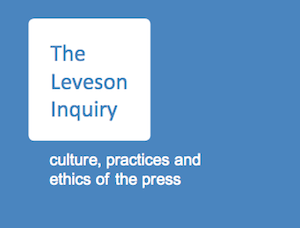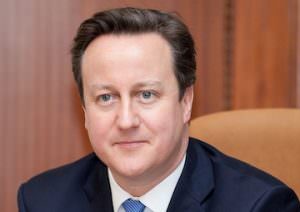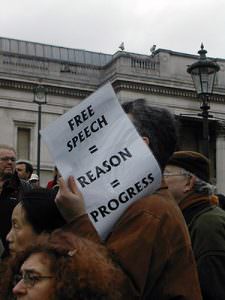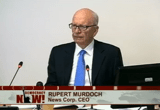Regulatory Outcome of British Press Inquiry Uncertain (Video)
At the end of a yearlong investigation into the conduct of British newspapers, the lead inspector fell short of calling for the establishment of a body to police the media industry. Instead, an “independent” entity should be directed to overhaul the organization by which the press regulates itself, he said.
At the end of a yearlong investigation into the conduct of British newspapers, the lead inspector fell short of calling for the establishment of a body to police the media industry. Instead, an “independent” entity should be directed to overhaul the organization by which the press regulates itself, he said.
According to a report by The Guardian, Lord Justice Leveson recommended that a government-approved organization such as Ofcom, which has some authority to promote competition between publishers and broadcasters, be appointed to oversee the reformation of the Press Complaints Commission, which will be relied upon to regulate the press. The PCC is currently a voluntary regulatory body with no legal powers and is fully funded by its member newspapers and magazines, meaning the industry polices itself.
With the exception of giving some legal power to the group that monitors the PCC, Leveson is uninterested in regulating the press outright. “The legislation would not establish a body to regulate the press: it would be up to the press to come forward with their own body that meets the criteria laid down,” he wrote in the report’s executive summary. An oversight body such as Ofcom would be legally empowered to step in if the PCC fails to do its job.
Whether the criteria Leveson hints at are strong enough to produce regulation that prevents wrongdoing, such as the phone hacking that prompted the investigation, will depend on how lawmakers decide to reform the PCC and what legal powers they grant the organization that oversees it.
— Posted by Alexander Reed Kelly.
The Guardian:
In the 56-page summary to his wide-ranging 2,000-page report, Leveson says the purpose of legislation is “not to establish a body to regulate the press”. But he warns that if newspapers are not prepared to join a revamped PCC it will be necessary to force Ofcom to act as a “backstop regulator”.
Leveson says it is necessary for a body like Ofcom to monitor a revamped PCC to “reassure the public of its independence” – but insists that legislation would “not establish a body to regulate the press, that is for the press to do”.
The Guardian:
Your support matters…Independent journalism is under threat and overshadowed by heavily funded mainstream media.
You can help level the playing field. Become a member.
Your tax-deductible contribution keeps us digging beneath the headlines to give you thought-provoking, investigative reporting and analysis that unearths what's really happening- without compromise.
Give today to support our courageous, independent journalists.





